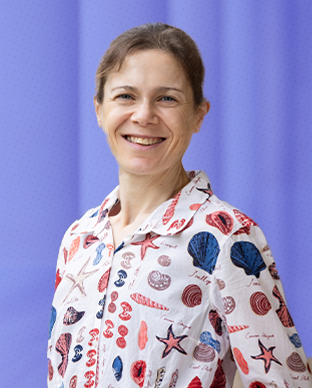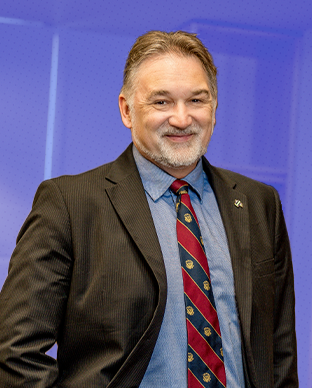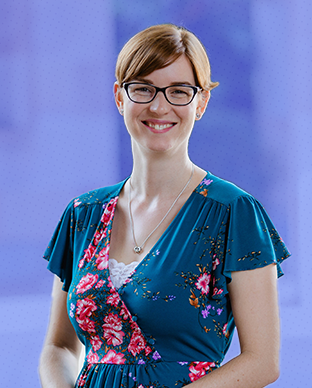The fate of flexible work:
How culture, technology, design
and wellbeing will shape the workplace
Featured UQ Business School experts: Associate Professor Terry Fitzsimmons, Dr Caroline Knight and Dr Gemma Irving
The COVID-19 pandemic didn’t just disrupt our world; it transformed the very essence of how – and where – we work.
Overnight, bustling CBD offices emptied as millions swapped their morning commute for home offices and a new era of "socially distanced" collaboration. What began as a temporary shift born from necessity soon evolved into a reimagining of work itself.
More than just where people work, the notion of flexible work evolved to encompass how they work, with people prizing autonomous workforce participation, self-paced productivity and work-life balance. Businesses reframed flexibility not just as a perk but as a fundamental aspect of workplace culture.
Yet workplace flexibility is at a crossroads as many organisations that once championed remote and hybrid work seek to turn back the clock. Corporate giants including Amazon, Twitter/X and Dell are now mandating that staff return to the office 5 days a week, raising questions about the future of work. Can flexible work survive, and what might it look like in the future?
Experts from The University of Queensland (UQ) Business School share their insight on how culture, technology, design and wellbeing will shape the future of flexible work arrangements and offer strategies for business leaders to manage employees as workplaces continue to adapt and evolve.
Listen to this story
Building a culture of trust and autonomy
Dr Caroline Knight is an expert in designing work for optimal wellbeing and performance – from exploring how employees are embedded in an organisation to the impact of their tasks and responsibilities. She found that building a positive workplace culture of trust was key to improving job satisfaction and productivity.

“At the moment, a lot of the decisions around winding back remote and hybrid working and wanting people in the office aren’t based on robust, evidence-based research,” Dr Knight said.
“I haven’t seen any evidence that people don’t work effectively from home, so I think this opinion comes from a place of distrust.”
Dr Knight’s research showed that organisations “over-monitoring” employees can increase distress and reduce productivity. Now, she’s examining the impact on employee burnout. Instead of micromanaging, she recommended organisations tap into what constructively motivates employees.
“We know that autonomy really drives positive outcomes at work, both across employee wellbeing and performance,” Dr Knight said.
“Autonomy, flexibility and building work for the individual rather than adopting a one-size-fits-all approach will be more effective in the long term.”

“Both situations highlight the importance of leadership – transformational, authentic, caring leaders achieved better outcomes during the pandemic than the task-oriented, instrumental leaders who managed by watching and monitoring people,” Dr Fitzsimmons said.
“Ultimately, it all comes down to trust – if you don’t trust your employees, then you’re not going to be happy with any kind of flexible work arrangements.”
Read more: Does a 4-day work week help or hinder Australian business?
Connecting with technology and virtual communities
The sudden necessity for remote work in 2020 fast-tracked a technological shake-up, further evolving with the proliferation of Artificial Intelligence (AI).

“What the pandemic showed was that we can quite successfully collaborate in virtual settings,” Dr Irving said.
Bringing people together for a purpose
Pre-pandemic, Dr Irving’s research into collaborative and productive workplaces yielded a surprising result: most traditional shared office spaces didn’t support effective collaboration.
“It’s about bringing people into the office to build support around them and help them connect,” she said.“Forget day-to-day stuff that your employees can do online; instead, ask how can you bring people together for learning and development, a conference, to socialise a network or onboard new team members?”
The business case for boosting wellbeing
– from reproductive leave to climate change action
Looking after employees and meeting their holistic needs makes good business sense. In a constantly shifting job market, employers of choice continually engage their employees by offering flexibility and benefits beyond what’s legislated, and embedding inclusion, accessibility and individuality across their operations.
“When people feel valued, they’ll think, ‘Hang on, this organisation is looking after me,’ and that gratitude means they’ll often go the extra mile for their company.”
The verdict: in-office, remote or hybrid?
#1 Invest in thoughtful connection and collaboration
- adopting a one-on-one, personalised onboarding process
- implementing considered collaboration opportunities such as virtual mentoring, online seminars and virtual community groups
- bringing people together in deliberate and thoughtful ways, such as team-building exercises
- ensuring employees feel connected to each other and the company – that they “fit in”
#2 Communicate change processes effectively
- alerting employees to the new arrangement early in the process
- offering transparency about why the policy is being implemented
- communicating updates clearly
- consulting employees to learn what they need to transition smoothly to the new arrangement
#3 Review policies and practices in line with business objectives
- engaging employees in the development of work policies to promote a sense of shared ownership
- revisiting policies regularly to amend them if they don’t produce the required results
- adopting inclusive workplace practices to ensure all employees can participate
Discover how you can shape your future career with UQ’s Master of Business Administration (MBA)
Dr Caroline Knight 
Dr Caroline Knight is a Senior Lecturer in Management at The University of Queensland Business School. Dr Knight’s research focuses on understanding how we can design and redesign work that is optimal for health and wellbeing. Specifically, her interests focus on work design in the context of hybrid and remote work, and both top-down manager-led and bottom-up individual-led work redesign interventions, such as job crafting.
Associate Professor Terry Fitzsimmons
Dr Terry Fitzsimmons is an Associate Professor in Leadership with The University of Queensland Business School and the UQ MBA program. He’s the Director of the AIBE Centre for Gender Equality in the Workplace and Managing Director of the Australian Gender Equality Council (AGEC). Dr Fitzsimmons is also a member of the Business School’s Practice and Process Studies Research Hub.
Dr Gemma Irving
Dr Gemma Irving is a Lecturer in Strategy at The University of Queensland Business School. Her specific research interests include organisational spaces, collaboration, and professional work. Dr Irving’s current research agenda focuses on the role of spaces, including collaborative buildings, open-plan offices, and the floor of emergency departments, in shaping the day-to-day work of professionals such as scientists, engineers and doctors.

